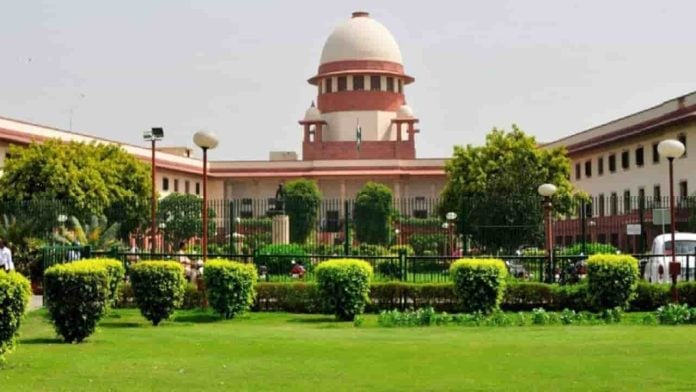The Supreme Court agreed to hear on June 21, a petition filed by the Enforcement Directorate (ED) against the Madras High Court order that permitted shifting of Tamil Nadu Electricity Minister V Senthil Balaji to a private hospital for heart surgery and restricting his interrogation in the hospital.
The matter was today mentioned before the Vacation Bench of Justice Surya Kant and Justice M.M. Sundresh by Solicitor General Tushar Mehta.
Quoting the Supreme Court order in CBI vs Anupam J. Kulkarni, the SG submitted that a Habeas Corpus petition was not maintainable.
He said transferring Balaji to a private hospital was unjustified as the investigating agency will not get custody beyond 15 days from the date of arrest.
The SG contended that once a person was remanded to custody, habeas did not lie. Besides, the validity of detention would have to be seen at the time of returnable date.
Noting that Balaj was an influential Minister, the SG said the High Court could not have entertained a Habeas Corpus petition against the lawful arrest and a court remand order.
As per the judgement in the Kulkarni case, SG Mehta said the 15-day period granted to ED for custodial interrogation had started.
The top court of the country observed that a petition was pending before the High Court on the same subject. It listed the matter for hearing on June 21, noting that the Apex Court cannot decide on the matter before the High Court delivered its verdict.
Last week, a local court in Chennai had remanded Balaji, who was arrested for his alleged involvement in the cash-for-job scheme, to eight-day ED custody for interrogation.
Balaji is currently undergoing medical treatment at a private hospital in Chennai. He is technically under judicial custody
While rejecting the interim bail petition of the Minister, Principal Judge at City Civil and Sessions Court in Chennai, S. Alli directed the ED to produce Balaji before the court on June 23 via video-conferencing.
The court ruled that Balaji would continue to remain in Kauvery Hospital under medical care and the ED could continue with its custodial interrogation at the hospital itself.
The national agency had arrested the Minister under the Prevention of Money Laundering Act (PMLA).
The Sessions Court refused to grant interim bail to Balaji on the grounds that the Minister was already receiving requisite medical treatment and that given the ‘seriousness’ and ‘gravity’ of the offence allegedly committed by the Minister, a case for grant of interim medical bail was not made in the present case.
Soon after his arrest by ED, Balaji had complained of chest pain and was admitted to a government hospital, where he underwent a coronary angiogram on June 14.
The Sessions Court judge visited the hospital on Wednesday to ascertain the Minister’s health condition and sent him to judicial custody till June 28.
Balaji’s wife S. Megala filed a Habeas Corpus petition under Article 226 of the Constitution, contending that ED had arrested the Minister under PMLA without any prior issuance of summons or notice.
The Division Bench of Justice M. Sundar and Justice R. Sakthivel on June 13 permitted Balaji to shift to Kauvery Hospital for better treatment. The Minister was then admitted to the private hospital on June 15.
Appearing for the petitioner, Senior Advocate N.R. Elango submitted that while Balaji has no objections to answering the ED’s questions, he will inform the High Court that the Principal Sessions Judge’s order granting custodial interrogation to ED amounted to ‘judicial impropriety’ since the High court had said that Balaji will remain under judicial custody.
Balaji was arrested on Tuesday after the ED initiated questioning in a case registered against him for offences allegedly committed by him during his tenure as the Transport Minister during the government of All India Anna Dravida Munnetra Kazkhagam (AIADMK) from 2011-2015.
The Enforcement Directorate had resumed its probe into the matter after the Supreme Court order of June 16. The Apex Court had reversed the decision of the Madras High Court that guided the police officials of the state to commence fresh investigation in the matter, and permitted ED to continue the ongoing probe.


